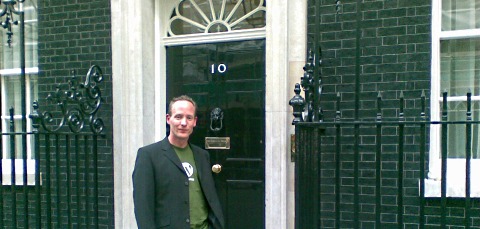 PR Week is reporting that Matt Tee, currently chief executive of NHS Direct, has been appointed the new Permanent Secretary of Government Communications; a formal decision is apparently due later today.
PR Week is reporting that Matt Tee, currently chief executive of NHS Direct, has been appointed the new Permanent Secretary of Government Communications; a formal decision is apparently due later today.
It’s an intriguing appointment: Tee’s background is very different to that of his predecessor, Howell James. He came into government (proper) from a business development role at health information company Dr Foster, which already had close links with the NHS. He’s a former head of news at DTI, and was acting director of comms at the Department of Health in 2006 and 2007, whilst Sian Jarvis was on maternity leave. He joined NHS Direct in July 2007; and in the last couple of weeks said he was ‘disappointed’ at having to shelve plans for foundation status.
He’s well connected, judging by his Facebook friends anyway – among them his predecessor in the job, Mike Grannatt, and Cabinet Office minister Liam Byrne. And it’ll certainly be good to have someone with hands-on experience of online: Dr Foster ran NHS Choices (until recently), and DH was steadily moving to its new platform during his tenure. Plus, if memory serves, he’s a fellow Arsenal fan? I certainly remember a Matt Tee contributing to the Arsenal mailing list and Arseweb website in the early/mid 1990s.
But I’ll also note that Health has come in for particular criticism in evidence to the House of Lords Comms committee over the summer: there’s quite emotive language in Computer Weekly editor Tony Collins’s write-up of his appearance; whilst Times health editor Nigel Hawkes saying relations were ‘not particularly good’:
They are even discouraging you from developing a relationship of trust with an individual press officer. … Very often big announcements will be so extensively trailed that by the time the report actually appears I cannot persuade my news desk it is of the slightest importance. That leads to bad reporting. … I find [the DH press office] are just useful for getting the line; I would not use them for anything else.
There have been big improvements in communications with the public through websites and participation events and so on. Big efforts have been made there but there is still an understandable reluctance to acknowledge that sometimes policies are not working. If there were more willingness to acknowledge a policy did not work so they will do something else, then they could build a bit of credibility with journalists and be taken a bit more seriously by them.
Update: appointment now confirmed by the Cabinet Office. Interestingly they’ve used the same pic I used… and if you look at the source code of this page, you’ll see exactly where I found it. 😉







